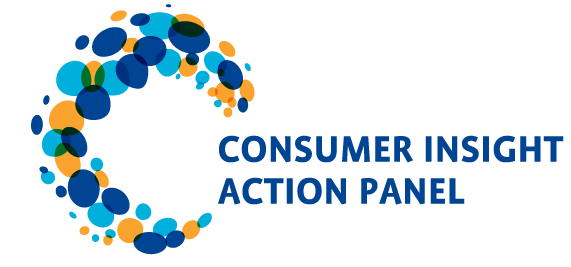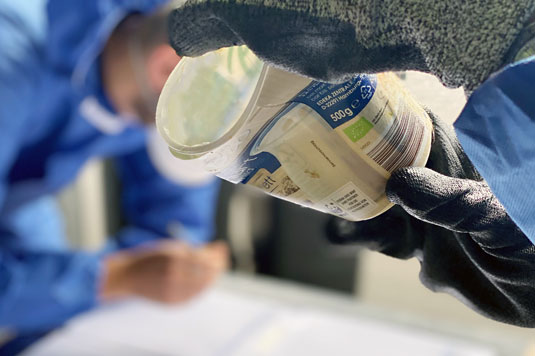What can garbage bins reveal about consumer waste sorting practices and underlying behaviours? How can such information be used to improve waste separation? Is behaviour change or a change in the product package design the best solution in a specific case? The Club for Sustainable Packaging Solutions, as part of CIAP (Consumer Insight Action Panel), conducted a household waste analysis in Solingen to shed new light on potential interventions for more sustainable practices in waste management.
A search through the bins of residual and recyclable waste from private households was central to the analysis in the aim of understanding recurring waste sorting patterns. Members of the Club for Sustainable Packaging Solutions (Club für Nachhaltige Verpackungslösungen) looked at four product categories in particular: dairy cups, food packaging consisting of tray and film, cleaning products packaging, and blister-cardboard combinations as used in batteries. For example, it was looked if the yogurt lid had been separated from the cup or if soap pouches were thrown into the residual or the recyclable bin. In addition, attention was paid as to whether the packaging of specific products included any separation instructions for the consumer. CSCP’s Stephan Schaller, who moderates the club, highlighted the importance of “clear and simple messages for the consumer” in order to facilitate proper sorting.
The aim of the club is to work with stakeholders in integrating consumer insights into the development of sustainable (circular) packaging and generate new solutions. The household waste analysis will offer useful cues about barriers and enablers towards better sorting practices. The results of the analysis will be completed in September 2020, whereas the general findings of the project will be directly fed at the EU level in the form of policy recommendations. Outcomes, such as documents and (virtual) learning sessions, will support knowledge-sharing with other actors, particularly Small and Medium-Sized Enterprises (SMEs).
Members of the CIAP Club for Sustainable Packaging Solutions include retailers like ALDI Nord/ALDI Süd, dm drogerie-markt and REWE Group, system gastronomy providers like McDonald‘s Germany, packaging companies, waste collectors and recyclers as well as non-governmental organisations (NGOs).
Project manager Schaller has summarized the first insights in a report for the radio station “Radio RSG” which you can find here.


